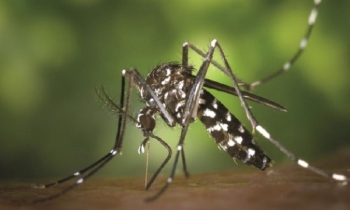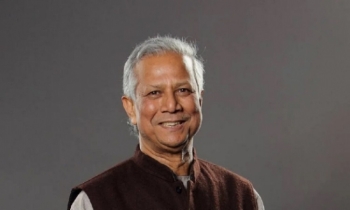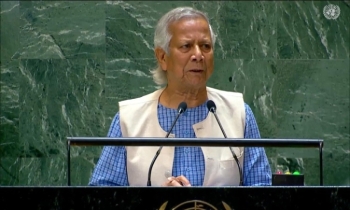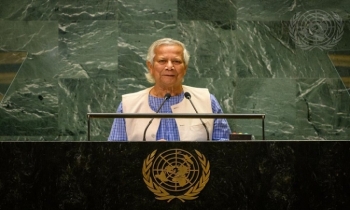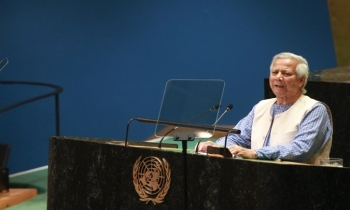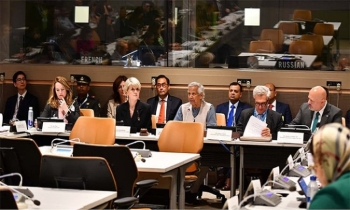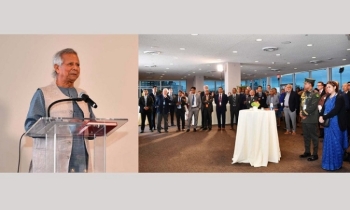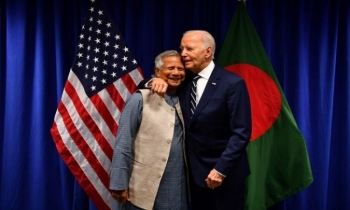SAARC delegates for advancing climate-smart agriculture in South Asia
BI Desk || BusinessInsider
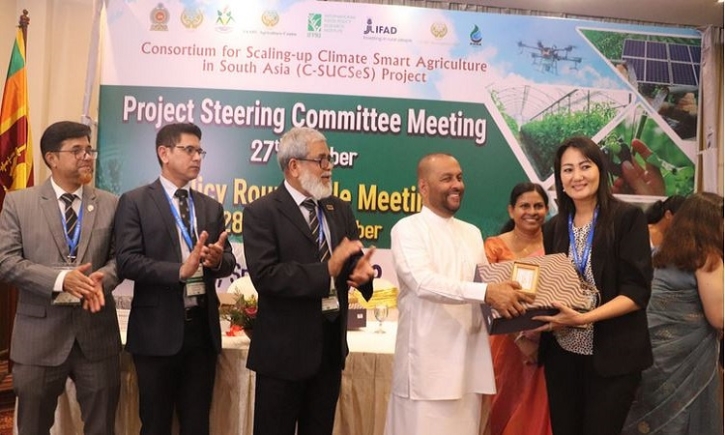
Photo: Collected
SAARC agricultural delegates have stressed advancing climate-smart agriculture aiming to cope with adverse impacts of climate change in the South Asia region.
The SAARC Agriculture Centre (SAC) and International Food and Policy Research (IFPRI) jointly organised the first project steering committee (PSC) meeting of the 'Consortium for Scaling-up Climate Smart Agriculture in South Asia (C-SUCSeS)' project and the Policy Roundtable from October 27 to 29, 2023, at Kandy in Sri Lanka.
The PSC meeting brought together a high-level delegation from SAARC member states of Bangladesh, Bhutan, India, Nepal, Sri Lanka, and Pakistan, according to a message received in Dhaka on Sunday, reports BSS.
The meeting was chaired by Dr Shaikh Mohammad Bokhtiar, Executive Chairman of Bangladesh Agriculture Research Council, and co-chaired by Dr Md Baktear Hossain, Director of SAARC Agriculture Centre.
The inaugural session of the meeting was graced by Agriculture Minister of Sri Lanka Mahinda Amaraweera and he also launched the 'Network of Climate Smart Agriculture in South Asia: Community of Practice (CoP)' and unveiled six books on 'Climate Smart Agriculture Technologies and Practices' produced by the SAARC member states.
The minister highly appreciated the contributions of the project in building climate-resilient farming communities in South Asia to further sustainable agricultural production.
He said climate-smart agriculture is a collective effort and we need the involvement of all stakeholders from farmers and agricultural associations to researchers, policymakers, and international organisations.
"Together, we can create a more sustainable and resilient agricultural sector," he said, adding that the network of CSA will pave the way to share and exchange knowledge, establish collaboration and communication, build professional capacity, and explore innovative ideas on CSA to combat climate change impact.
Dr Baktear Hossain said C-SUCSeS Project is a pioneering initiative aimed at scaling up climate-smart agriculture practices in South Asian countries.
He added that the project places great importance on collaboration, knowledge-sharing, and innovation. In this spirit, the project is proud to introduce an online network that will serve as a platform for stakeholders, experts, and enthusiasts to share knowledge, research, and experiences related to climate-smart agriculture.
Speaking on the occasion, Director General of Agriculture Department in Sri Lanka, P Malathy, said: "We must continuously seek new and improved practices, ones that not only reduce our environmental impact but also increase our agricultural yields and enhance the well-being of our farming communities. This is the essence of the C-SUCSeS Project."
Director of SAARC Secretariat Jamal Uddin Ahmed commented that "the event is a testament to the commitment of SAARC Leaders to promote CSA technologies in South Asia. This multi-country project is the first of its kind in the region, coming at a time when climate change has emerged as a significant threat to the agricultural landscape."
IFPRI Research Coordinator Dr Mamata Pradhan said, "CSA as an approach is not entirely new. Over the years our farmers have been sharing their CSA insights as they adapted to changing weather patterns. But there is a need to develop and scale-up resilience and adaptability when it comes to environment and climate change for the countries in this region to ensure achievement of food and livelihood security."
Dr Sheikh Mohammad Bakhtiar said South Asia is home to 25 percent of the world's population and occupies only 4 percent of the world's land.
"COVID-19, the Russia-Ukraine War, and the immense negative impact of climate change remind us of the critical importance of agriculture and how it is affected by climate change,' he said.
He emphasised the importance of the consortium and its focus on prioritising climate-smart agriculture (CSA).
"Currently, there is no other consortium like this. Therefore, we must ensure its success in the battle against climate change," he added.
The roundtable has brought together policymakers, scientists, researchers, extension agents, farmers' representatives and private sector delegates from Bangladesh, Bhutan, India, the Maldives, Nepal, Sri Lanka and Pakistan.
This roundtable dedicated to understanding of CSA in the South Asia context and exploring strategies, and programmatic approaches aimed at scaling up the adoption of Climate-Smart Agriculture (CSA) technologies by smallholder and women farmers in South Asia.

